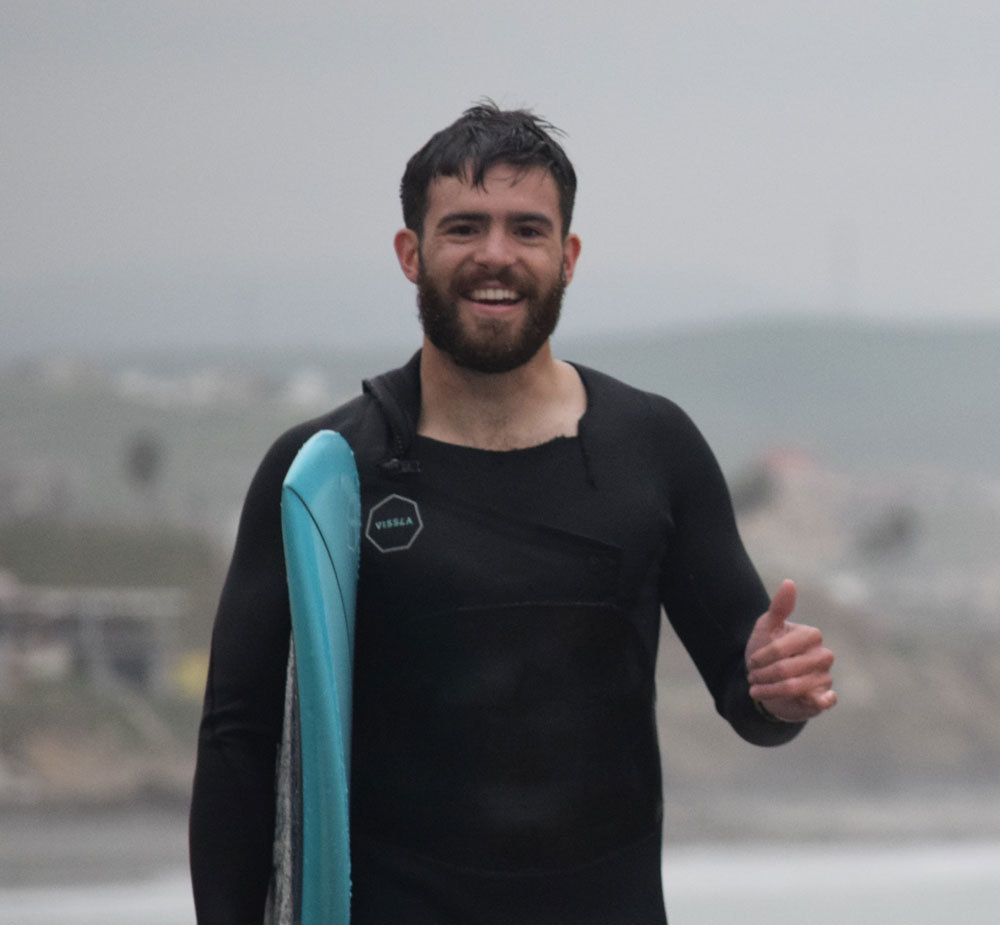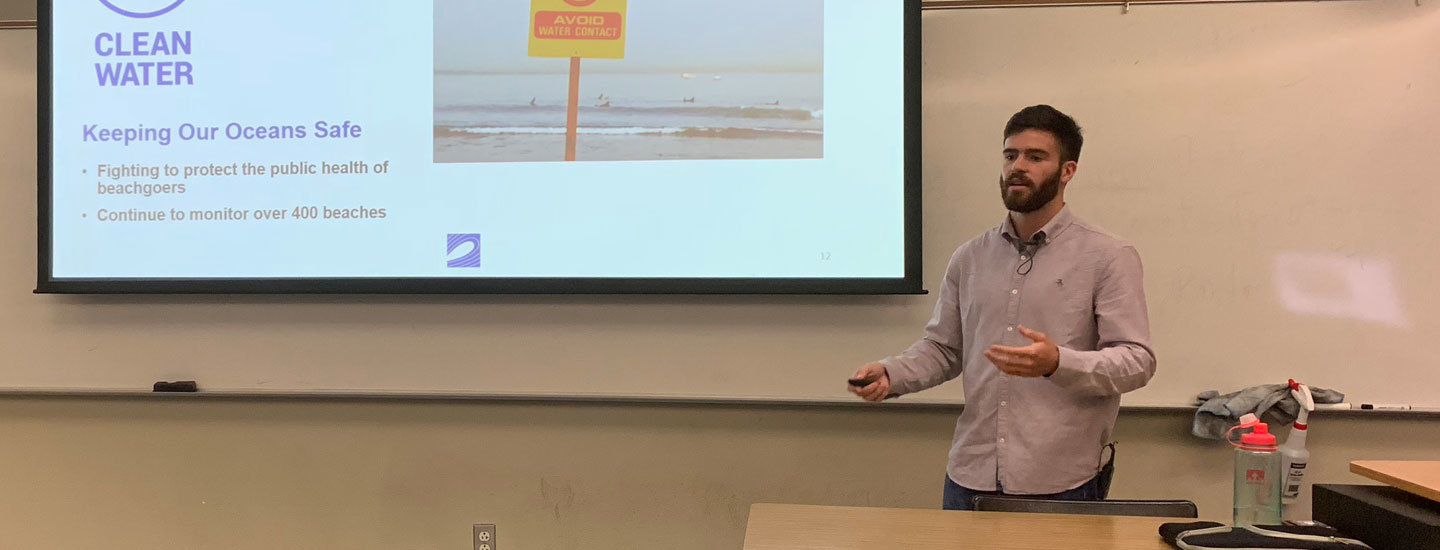
Q: Please give us a brief introduction about yourself.
I was born and raised in the Central Coast of California where I was fortunate enough to have parents that took my siblings and I to the beach frequently. I moved to San Diego to start my undergraduate career because of the great surf spots and the close proximity to my family in Spring Valley. Both the ocean and family have played a crucial role in my life.
Q: What is your current job or role in your local chapter?
I am one of the co-leads of the Blue Water Task Force (BWTF), a water quality monitoring and advocacy program, and I have been in my role for a little over four years. Since the BWTF samples on a weekly basis, I routinely contact volunteers about sampling and processing ocean water samples.
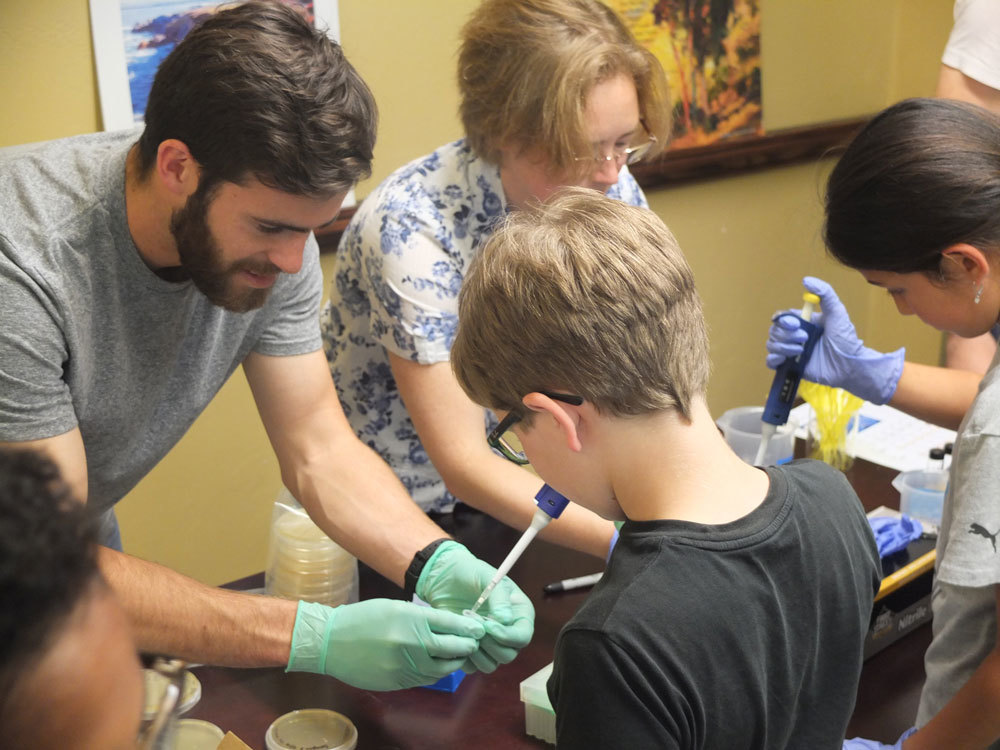
Q: Why and when did you get involved with the Surfrider Foundation?
I got involved with Surfrider originally by assisting the 'No Border Sewage program' in 2015—now the program is called 'Clean Border Water Now.' In the spring of 2017, I attended one of the first BWTF meetings and they needed someone with a background in science to help develop the San Diego proper laboratory. I felt like it was a perfect opportunity to engage the community in science that could directly benefit, as well as diminish, the barrier to science education.
Q: Has your experience as someone from the Latinx / Hispanic community framed your perspective as an activist and as part of the Surfrider network? And if so, how?
I think it offers another perspective on events that are occurring in my community. Many issues near the transboundary region between Mexico and the United States can often turn into an ‘us vs. them’ environment, but I try to share my experiences to shed the light on the complexities of that region.
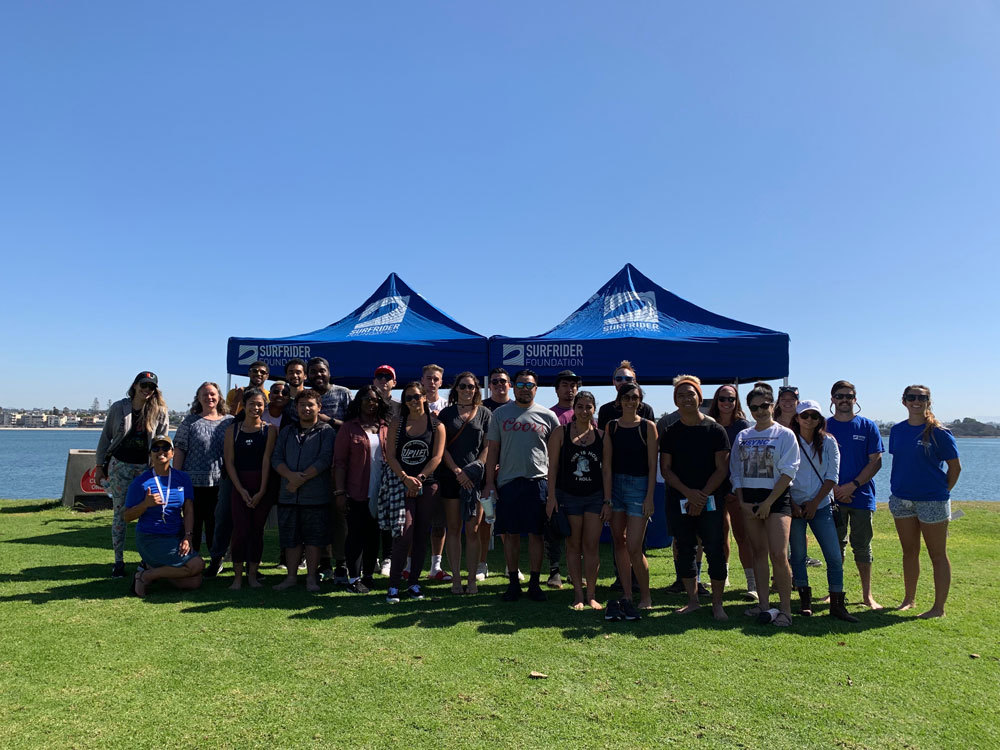
Q: What are some local issues that are affecting your ocean, waves and beaches?
San Diego, like many U.S. cities, has outdated stormwater infrastructure that results in polluted beaches and ocean water during the wet season. Sampling data done by various organizations can really demonstrate how pervasive that issue is.
Q: What Surfrider projects have you worked on?
One of the advantages to collecting water quality data on a weekly basis is that we can identify trends across our sites and use what we find to support environmental policy advocacy groups. For example, we observed consistent poor water quality at a site in the Mission Bay area and our data was used by ReWild Mission Bay—a project run by the San Diego Audubon and coalition partners to restore the natural wetlands in Mission Bay—to advocate for their project.
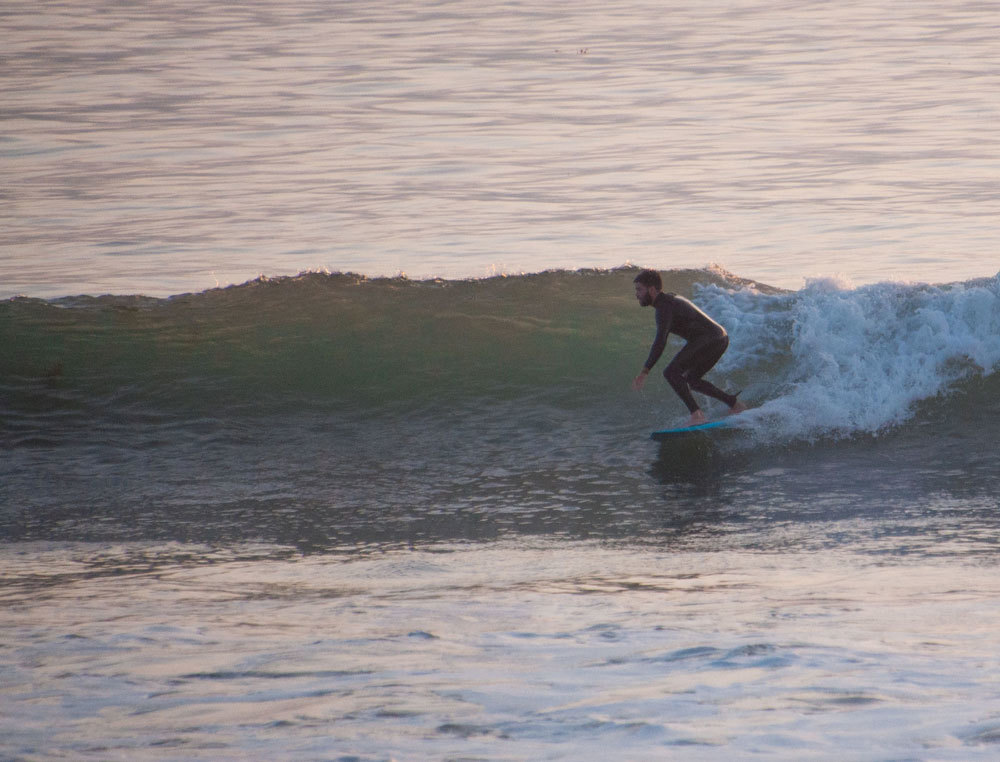
Q: What has been the highlight of your Surfrider experience?
The highlight for me actually happens each Friday when our ‘Weekend Beach Report’ newsletter is sent out. I enjoy the fact that each week, many volunteers help create the newsletter—whether they are sampling across our 12 sites in San Diego or coming up with witty subject lines.
Q: What is the most important thing you tell others about Surfrider?
Every time someone asks why I am involved with Surfrider, I tell them that it brings me joy. I get to volunteer alongside wonderful people and for a cause that I believe in.
